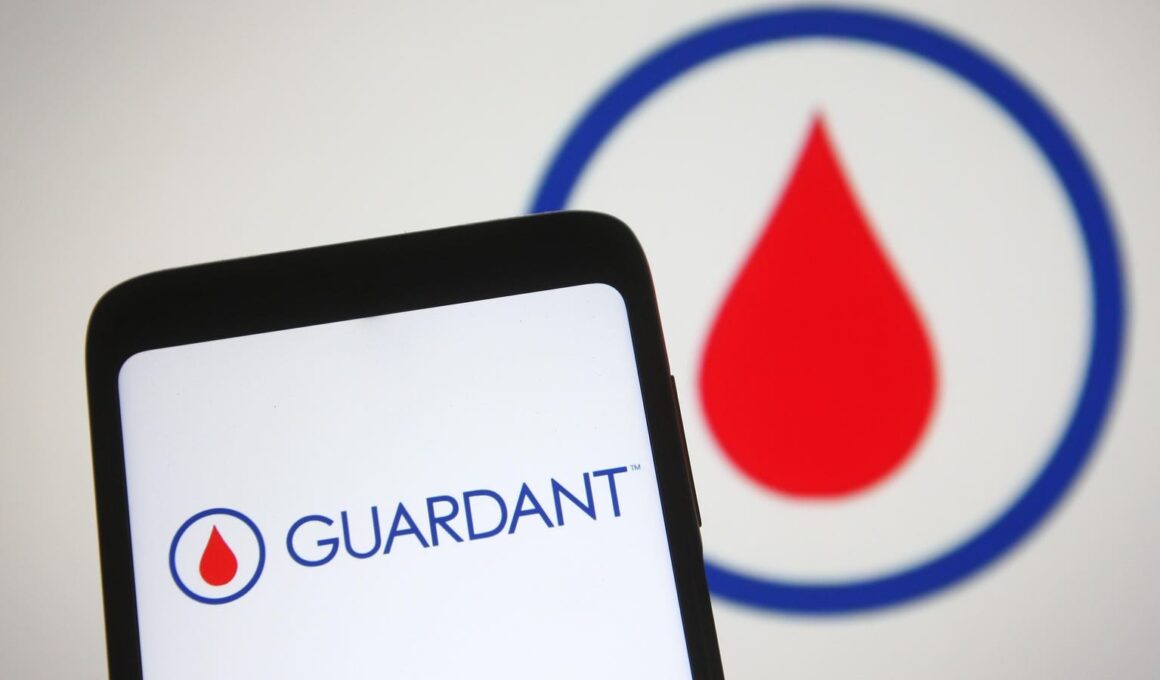Topline
Shares of Guardant Health jumped 7% on Monday, after the Food and Drug Administration approved the company’s blood test to screen for colon cancer, a new testing method the company said is intended to boost the rate of screenings for the disease as fewer eligible Americans opt for colonoscopies.
Fewer than 60% of eligible Americans have had colonoscopies and the new testing method could improve … [+]
Key Facts
Guardant Health’s shares rose to over $35 in premarket trading, following an earlier surge as high as 16% to over $38.
Guardant Health’s blood test, sold under the brand name Shield, was approved for screening adults 45 and older who are at average risk for colon cancer, the company said.
Shield is the first blood test approved by the FDA as a primary screening for colon or rectal cancers and is also the first to be covered by Medicare, according to Guardant Health.
A study published in March found Shield—which detects DNA released by cancerous tumors into the bloodstream—was 83% effective in detecting colon cancer and was more effective in finding late-stage cancers, though Shield only detected between 55% and 65% of stage I colorectal cancers.
Get Forbes Breaking News Text Alerts: We’re launching text message alerts so you’ll always know the biggest stories shaping the day’s headlines. Text “Alerts” to (201) 335-0739 or sign up here.
Surprising Fact
About 59% of eligible Americans have been screened for colon cancer, falling below a goal of 80% by the National Colorectal Cancer Roundtable, Guardant Health said. Most eligible adults don’t complete screenings for colon cancers—including colonoscopy or stool-based tests—because they are “invasive, unpleasant or inconvenient,” the company noted, adding colonoscopies are often associated with discomfort.
Big Number
152,810. That’s the estimated number of people in the U.S. who will be diagnosed with new cases of colon or rectal cancer in 2024, according to the American Cancer Society. About 53,000 people will die from either disease this year, the organization said.
Key Background
Researchers have studied alternatives to colonoscopies or stool-based tests for screening for colon cancer in recent decades. Colon cancer is the second-most common cause of cancer death in the U.S., according to the FDA, and the American Cancer Society has warned the death rate in people under 55 has increased by about 1% per year since the mid-2000s. A study published in 2022 found fewer adults are receiving colonoscopies, with about 12,000 people out of more than 28,000 opting to receive the screening after being invited to do so. That study found colonoscopies reduce the risk of colon cancer by 31% and the risk of dying of the disease by 50%. Another blood test to screen for colon cancer was approved in 2016, though doctors reportedly say it’s rarely used because of concerns about the test’s accuracy and the test not being covered by Medicare or private insurance.
Further Reading







